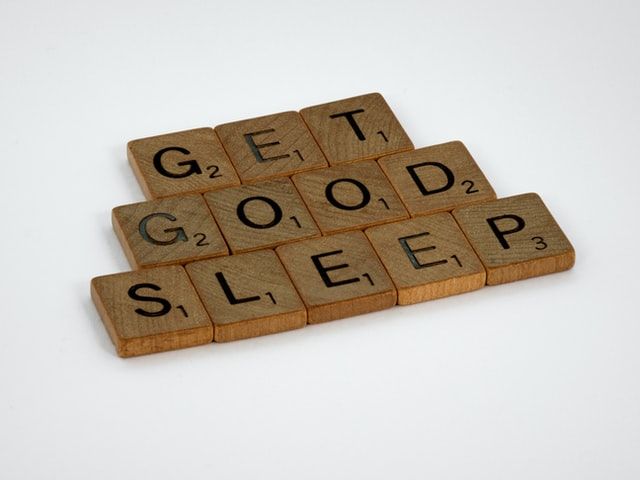
May is Better Sleep Month
How rested do you feel when you get out of bed in the morning? If your answer is “marginally” or “not at all,” then it’s time to hit the reset button on your bedtime routine. May is known as Better Sleep Month, an important recognition introduced by the Better Sleep Council to help people focus on improving their sleeping habits.
Sleeping well at night is integral to your ability to function well during the day. To encourage better “self health” this month, make sure to check out the sleep statistics below. Learn more tips on the importance of sleep, how to know if you’re getting enough sleep, and how to get better sleep.
How Common is it to Struggle with Sleep?
When you’re tossing and turning in between the sheets at night, it may help to take solace in the fact that you are not alone. In fact, the US Centers for Disease Control and Prevention (CDC) reports that one in three adults gets less than the recommended amount of sleep each night. For adults ages 18 to 64, experts suggest getting 7 to 9 hours of nightly sleep. Children need more sleep for their development, and older adults may need slightly less, with a recommended of 7 to 8 hours a night.
Short sleep duration is not a sleep disorder, per se, but if you’re not sleeping well, your sleep architecture becomes more vulnerable to disruption. Formal sleep disorders, such as insomnia, narcolepsy, restless legs syndrome (RLS), and sleep apnea, affect 50 to 70 million Americans yearly.
Why Are Sleep and Rest So Important?
Sleep is a pillar of health. During sleep, your brain and body reset and initiate recovery cascades that simply cannot proceed while you are awake. When you’re not sleeping, you can feel the effects fast. Sleep deprivation can make you feel groggy in the short term and affect your cognitive function, memory, mood, and energy level. It can also make you more vulnerable to dangerous situations like traffic accidents.
However, the importance of sleep transcends the short-term effects that you face after a single night of poor sleep. Chronic sleep deprivation can make you more vulnerable to a host of common chronic illnesses and health conditions, such as high blood pressure, cardiovascular disease (including heart attack and stroke), and diabetes. Chronic sleep deprivation also negatively impacts your immune system, making it easier for you to get sick and harder for your body to fight off invaders.
How to Know if You Are Getting Enough Sleep
If you’re getting enough sleep, you likely will not be thinking about your sleep. You will probably wake up feeling well-rested and able to function at an optimal level throughout your day. You may even find that you wake up in the morning at a predictable time without the need for an alarm clock. If you’re getting enough sleep, you will probably not feel cognitively slowed, groggy, tired, moody, or dependent on caffeine to get through your daily activities. You also may not experience physical symptoms such as puffy eyes, dark eye circles, or yawning.
3 Tips on How to Get Better Sleep
Sometimes all it takes to get into a better sleeping routine is a gentle nudge. To get your regular “zzz” sessions back on track, make sure to review the following three sleep tips.
- Put yourself on a sleep schedule. One of the most fundamental parts of sleeping well is also one of the most difficult. Experts recommend going to bed at the same time each night and waking up at the same time each morning. Being disciplined about a regular bedtime and not deviating on the weekends or special occasions can help your body relax on cue and fall asleep predictably.
- Avoid sleeping enemies. There are a number of enemies to a restful night’s sleep, including drinking caffeine or exercising too late in the day, drinking alcohol, eating a big meal before bedtime, and using electronic devices that emit blue light before bedtime. Following a proper sleep hygiene regimen can help you avoid these anti-sleep factors.
- Make your bedroom as pro-sleep as possible. The elements that contribute to a sleepy slumber den include temperature (make sure your room is not too hot), sound (make sure your room isn’t prone to noisy disruptions), and simplicity (try to remove items from your bedroom to help quiet your brain and eliminate distractions).
If you’re ready to revamp your sleep routine this May, make sure to visit the American Academy of Sleep Medicine (AASM) page on healthy sleep habits for even more tips.
Research and materials for this article were compiled, written, and distributed on behalf of the National Public Health Information Coalition. The views and opinions expressed in this blog are those of the various authors and do not necessarily reflect the official policy or position of the National Public Health Information Coalition or its members.
Sources:
[1] How much sleep do I need? https://www.cdc.gov/sleep/about_sleep/how_much_sleep.html
[2] Statistics About Insomnia, Sleep Apnea, and Other Sleep Disorders. https://www.sleepfoundation.org/how-sleep-works/sleep-facts-statistics#:~:text=the%20United%20States.-,Statistics%20About%20Insomnia%2C%20Sleep%20Apnea%2C%20and%20Other%20Sleep%20Disorders,U.S.%20have%20ongoing%20sleep%20disorders
[3] How to determine poor sleep quality. https://www.sleepfoundation.org/sleep-hygiene/how-to-determine-poor-quality-sleep
[4] Sleep hygiene. https://www.sleepfoundation.org/sleep-hygiene

